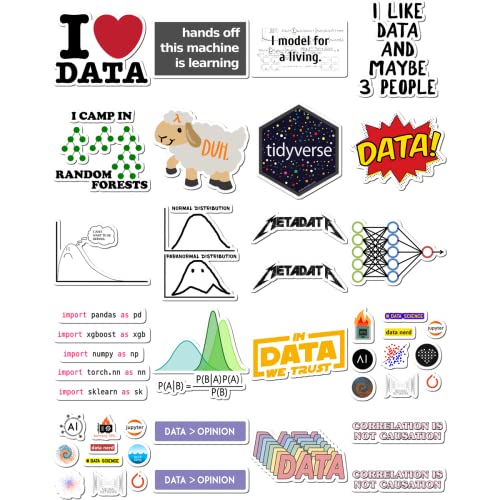For data science, the best laptops are those with high processing power for complex computations and sufficient ram for handling large datasets. Moreover, having a dedicated graphics card and a solid-state drive (ssd) is also recommended to enhance data visualization and improve overall performance.
Buying Guide On Best Laptops For Data Science
Best laptops for data science 1. Choose a laptop with a powerful processor like intel core i7 or amd ryzen 7 for fast data processing. 2. Look for laptops with a minimum of 16gb ram to handle large datasets and run complex algorithms smoothly.
3. Consider laptops with a dedicated graphics card, such as nvidia geforce or amd radeon, to accelerate machine learning tasks. 4. Opt for laptops with ample storage capacity, preferably ssd, to store and access large datasets quickly. 5. Ensure that the laptop has a high-resolution display, preferably 15 inches or larger, for better data visualization and analysis.
6. Look for laptops with good battery life to work on data science projects without being constantly plugged in. 7. Check for connectivity options like usb 3. 0 and thunderbolt ports for fast data transfer and connecting external devices. 8.
Consider laptops with a comfortable keyboard and touchpad for extended coding and data manipulation sessions. 9. Look for laptops that are lightweight and portable, making it easier to work on data science projects on the go. 10. Ensure that the laptop has a reliable and fast internet connection for accessing online data sources and cloud-based tools.
11. Consider laptops with good thermal management systems to prevent overheating during resource-intensive data processing tasks. 12. Check for sufficient i/o ports like hdmi, ethernet, and sd card slots for connecting to external monitors and other peripherals. 13. Look for laptops with a reputable brand and positive customer reviews to ensure durability and reliability.
14. Consider the budget and choose a laptop that offers the best value for money without compromising on essential features. 15. Research and compare different laptops before making a final decision, considering factors like performance, specifications, and price. 16. Check for warranty and after-sales service options to ensure prompt assistance in case of any technical issues.
17. Invest in additional accessories like an external monitor, wireless mouse, and a laptop cooling pad to enhance productivity and comfort. 18. Consider laptops with pre-installed data science software like python, r, and jupyter notebook for a hassle-free setup. 19.
Read online forums and communities to get recommendations from fellow data scientists and professionals in the field. 20. Make a decision based on your specific data science requirements, keeping in mind factors like computational power, storage, portability, and budget.
Conclusion
To sum it up, choosing the best laptop for data science is crucial for maximizing productivity and success in this field. With the right combination of processing power, storage capacity, graphics capabilities, and portability, data scientists can tackle complex tasks and analyze massive datasets with ease.
The laptops mentioned in this blog post, such as the macbook pro, dell xps 15, and hp spectre x360, have proven their worth in delivering exceptional performance and versatility. Whether you are a beginner or an experienced professional, investing in a reliable and efficient laptop will undoubtedly enhance your work and allow you to take your data science projects to the next level.
Consider your specific needs, budget, and desired features when making your decision, and you’ll be well-equipped to tackle the challenges of data science with confidence. Happy exploring and analyzing!











